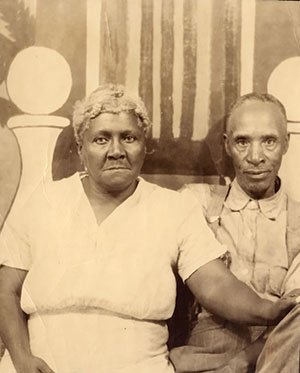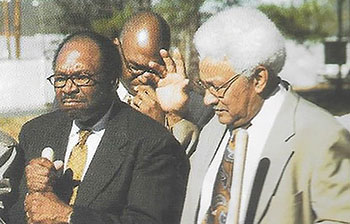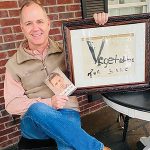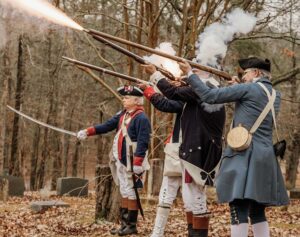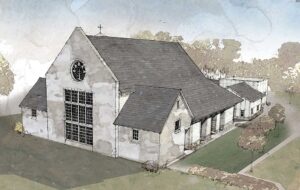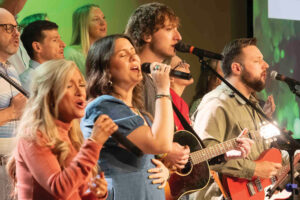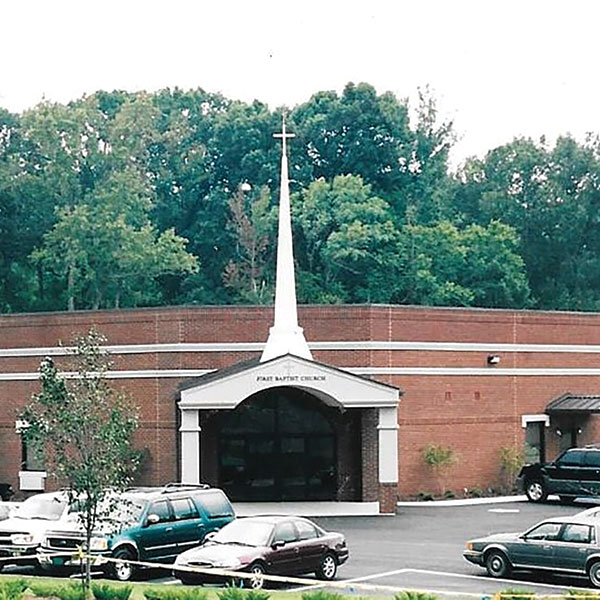
A storied history worth telling and preserving
Story by Joe Whitten
Submitted photos
Today’s destination is the corner of 19th Street South and 7th Avenue, the location of First Baptist Church South, hereafter FBC South. Organized by ex-slaves and their families, this church has served Pell City for 119 years.
During antebellum days, slaves worshiped together with whites, but in separate areas. When freedom came, Blacks continued worshiping interracially for a while. In Uplifting the People: Three Centuries of Black Baptists in Alabama, Wilson Fallin Jr. writes, “After emancipation, many Blacks began to leave white churches and form their own congregations. … By 1874, the year in which reconstruction ended in Alabama, the process of separation was complete….
“A desire for independence and …the opportunity to worship as they desired motivated Blacks to establish their own churches. …Blacks wanted a setting in which they could listen to and react to their own preachers, singing, dancing, and shouting in their own church.” This gave the freedmen “some measure of freedom over their lives and the opportunity to develop pride and self-respect. … These churches provided former slaves with a caring community.”
This freedom resulted in Blooming Light Baptist Church in Seddon. The former slaves who organized this church probably first met in homes, but by 1881, they officially organized as Blooming Light.
They soon joined Rushing Springs Association which served churches in Coosa, St. Clair and Calhoun counties. According to The Cyclopedia of the Colored Baptists in Alabama, Their Leaders and Their Work by Charles Octavius Boothe, by 1895, there were 6,500 Black Baptist in this Association.
Now, picture Pell City in 1901. The booklet, Hon. Sumter Cogswell and His Service as Founder of Pell City, Alabama, records that the town had one grocery store, the Cornett House Hotel and a train station for three railways traveling through. No highways – instead, “the principal artery of travel being the road from Eden to Cropwell to Talladega and Anniston.” The town progressed, and by 1902, a second St. Clair County Courthouse stood in Pell City.
By 1900, Blacks had formed a community south of today’s Cogswell Avenue and the railroad, establishing homes from today’s 19th Street South to U.S. 231. Many of these families belonged to Blooming Light Baptist, the nearest Black church.
Many ministers had a circuit of four churches, preaching once a month to each congregation. Pell City members of Blooming Light walked to church, and bad weather on Sundays hindered attendance.
By 1902, Pell City’s Black community had enough Baptists to form a church. Therefore, several Blooming Light members requested dismissal from that church so they could organize their own.
A typescript history of FBC South names some who met to organize: “Bro. C.J. Collins and wife, Coline; Rev. A.Z. Beavers and wife, Mary; Bro. Sam Collins and wife, Mary; Bro. Joe Collins; Bro. Joe Lawson and others.” The group chose the name Union Baptist Church with Rev. J.T. Chatman as pastor. This meeting took place “… at the old House of Knowledge School. …on U.S. Highway 231 North of the Alacare Center location where the home of Bro. Dibb (and Millie) Curry…was located.”
The Currys’ granddaughter, Josephine Curry Watson, grew up in their home and called them “Mama and Papa.” “They were plain people who stayed home and took care of the household,” she recalled. “They didn’t have problems with anyone.”
She remembered their home as a welcoming one where visitors sought advice from Dibb. “I got my values from them,” she reflected. “I learned the Bible from them, and today, I’m a teacher and a missionary. They were good people.” This describes a stable, “salt-of-the-earth” family and probably describes other families who formed Union Baptist/FBC South.
Union Baptist soon joined the Colored Baptist Association, which served churches in Shelby and St. Clair counties. Today, the Association’s name is Mt. Zion Coosa Valley Association.
Sometime after 1902, Union Baptist purchased a lot on 19th Street South and constructed the building where New Beginnings Baptist Church holds services now. The church history records that, in 1934, “…the church was rebuilt on the site and was named the First Baptist Church of Pell City.” Rev. M.H. Sims was pastor.
Community news in The St. Clair News-Aegis regularly reported church activities, as shown in this of Jan. 31, 1952, “Rev. M.H. Sims, pastor of the First Baptist Church, Pell City, preached his farewell sermon last Sunday. He has pastored here for 23 years and is the oldest minister in the district.”
After Rev. Sims, Rev. R.E. Avery pastored for a few years. The St. Clair News-Aegis of Oct. 13, 1955, reported, “Sunday October 9th was a grand day at the First Baptist Church in Pell City. Rev. R.E. Avery, pastor, preached a wonderful sermon. His text was ‘Stay on the ship or you will be lost.’ Sunday afternoon the church held Appreciation Day for R.E. Avery.” Remembered as a dynamic speaker, Rev. Avery pastored until 1955.
About two years later, Rev. W.F. Poole began his 19-year ministry and worked for racial unity in Pell City during that time. On Oct. 19, 1962, The St. Clair News-Aegis published this letter from Rev. Poole:
“To the Citizens of Pell City: Please allow me this space to express my gratitude to all our white and colored friends for the fine support we have received during my five years of pastoring in the city of Pell City.
“I have worked in other places, but at no other place I’ve worked have I received any better cooperation. …
“Let us continue with peace between the races and the cooperation we have enjoyed in the past. Rev. W.F. Poole (Colored), Pastor First Baptist Church Pell City.”
Rev. Ronnie C. Beavers accepted the pastorate of the church Feb. 2, 1976. Under his leadership, the church expanded its ministries, updated the sanctuary and purchased property for future expansion.
Marion Frazier remembers well many of these pastors. Rev. Avery baptized her in the outside baptistry the deacons had recently dug and lined. “I was baptized in August of 1952, and he stayed, I believe, until 1955. He was a dynamic preacher. … He would end his sermons by singing a hymn, and the congregation would sing with him.”
Of Rev. W.F. Poole, Mrs. Frazier said, “I remember him and his wife and children very well. He was instrumental in our church because he loved singing hymns. He often closed his sermons with a hymn. His favorite hymn was In a Time Like This, I Need the Lord to Help Me.
“Rev. Poole came in ’56 or ’57 and stayed for 19 years. He worked for unity among the races, and we had a good relationship. We had associations with First Baptist here in Pell City on the north side. That’s where the distinction of FBC South came in; they were First Baptist North.”
“Rev. Beavers came in 1976 and stayed until 2000,” she recalled. During his ministry, he organized The R.C. Beavers’ Singers. Rev. Beavers loved to sing.” Under his leadership, the church choirs recorded an album.
Mrs. Frazier loves her church and enjoys recalling its history and events. Known in Pell City as an exceptional singer herself, she spoke fondly of their Choir Anniversaries. Observed every September, FBC South invited choirs from throughout the district to participate. Choir member Billy Joe Robinson, Dibb and Minnie Curry’s grandson, sang with the Star Lights of Pell City and often invited choirs from outside the district. These concerts filled the church to capacity.
District churches observe yearly homecomings, and they have arranged for each church to hold celebrations on different Sunday so congregations can celebrate together. Celebrating together results in unity and cooperation. FBC South has Homecoming the second Sunday in August.
On Oct. 18, 1981, FBC South celebrated its 79th anniversary. The memorial booklet for that event contains observations by pastor Rev. Ronnie C. Beavers, who gives praise and thanksgiving to God for the church. It also records historical events and a rich pictorial history with names under the photos. Rev. Beavers conducted the regular worship hour after which the congregation enjoyed a meal together. The afternoon service included Deacon Charles Jones singing the chosen anniversary hymn, Guide Me Oh Thou Great Jehovah, and Rev. Samuel Turner of Union Springs Baptist Church, Talladega, preaching the sermon.
In the memorial booklet, Rev. Beavers wrote, “We are truly grateful to God our Heavenly Father for those who toiled and labored so hard before us in breaking the ground to establish the foundation of this church which is dedicated to the up-building of God’s kingdom. Surely, He has smiled on us down through the years as even the old patriots continued to worship Him after having walked to the church in the rain, sunshine, sleet, and snow. Now, we, the present generation, must continue to move forward with that same spirit of determination to meet the need of a sinful world by spreading the message of Jesus Christ. This is the task of the church, and we dedicate and rededicate ourselves to accepting the challenge that the Lord has put before us ….”
Rev. Beavers concluded his remarks by thanking the church for working untiringly during his six years of his ministry and concluded, “I ask you to join me in looking to the Hills from whence cometh our help to seek the future directions through the grace of God that has brought us safe thus far and that His same grace will lead us on.”
Rev. Beavers’ comments for that 79th anniversary spoke of the past, present and future. Under his ministry, the church purchased the property on the corner of 7th Avenue and 19th Street South for constructing a larger sanctuary. In 2000, at the end of his 24 years as pastor, the church stood ready, through God’s grace, to plan for a new sanctuary.
In a special service on Jan.12, 2002, under Rev. Elliot T. Ivey’s ministry, the church broke ground for their new building. Goodgame Co. of Pell City did the work, and construction progressed steadily month by month. Goodgame completed their work in October 2002 in time for First Baptist’s 100th anniversary.
And what a celebration that was for church members and their friends! The Goodgame family, construction workers, Pell City mayor and city officials attended and joined the congregation’s afternoon walk from the old building to the new one for a dedication worship service.
Mrs. Frazier recalls, “We got congratulation letters from the State of Alabama, the governor and local officials. We framed those, and they hang on the church walls today.”
Among the papers about First Baptist on file at the Pell City Library is a page titled, A Prayer for Our New Sanctuary, which reads in part:
“Thou gracious and giving God…,We thank Thee for having given to our predecessors the vision and will to provide the church which has served us so far. Because of their devotion and Thy blessings our church family has outgrown the work of their hands. …
“We would build wisely and so well that long years hence our sons and daughters may gratefully say, ‘See! This our forefathers builded for us.’
“In HIS NAME, who loves us and gave Himself for us, we pray. Amen.”
George Forman grew up in this church and said of Rev. Elliot T. Ivey, “He was the most electrifying preacher I ever heard.” Forman also told how FBC South deacons mentored him as a boy. “My father died when I was one year old. Mr. Tobe Williams, Mr. William Matthews and Mr. Virgil Oden took me under their wings and taught me about life – what’s right and what’s wrong, how to respect and be respected, how to love your fellow man, how to go through life treating people. If people mistreat you, don’t go back and try to do the same thing to them; just believe in the Lord, cause, ‘Vengeance is mine, saith the Lord.’ They went out of their way to spend time with me. And Mr. M.C. McCoy was a businessman who taught me that education was essential.
“All those men were a blessing to me. They didn’t have a high school education, but they had more than a high school education. And they shared it.” That’s high praise for any man, but especially so for the deacon body of a church.
Twenty-four-year-old Christopher Evans II joined Forman in the interview, and both spoke of taking part in Christmas and Easter programs at church. Forman said that participating in these music and drama programs “… was like living what you’d been taught. You act it out and it’s gonna stick with you.” Christopher agreed, saying that for young people, the dramas “… helped us understand what was going on.” He added that sometimes “young people don’t like to read,” and the programs helped them understand the Bible. Mrs. Frazier directed the drama, and the late Ronnie White the music for these programs.
One of Christopher’s favorite times as a youth was yearly Vacation Bible School at FBC South. “That was the best thing,” he recalled. “We always went to Boys’ and Girls’ Club, and we just went from there to Vacation Bible School where you learned different things.” Other churches took part, so there was fellowship among the congregations at these events.
The 2020 COVID-19 pandemic curtailed in-person worship services, which precluded the joy and comfort in corporate fellowship. At FBC South, beginning in March, worship was streamed online, but by autumn 2020, the deacons and choir members were meeting each Sunday with Dr. Wilson to stream the service. The pandemic prevented these yearly events in 2020.
Dr. Wilson, pastor since 2007, recently reflected upon this unprecedented situation:
“In the midst of this COVID-19 pandemic, it is no secret that many people are suffering or experiencing loss in some way. The same holds true for the believer. Fear, stress and hopelessness have gripped many homes, even the households of Christians.
“As we endure this season in which social and spiritual interactions have been greatly thwarted, not by choice but rather by circumstances that are beyond our human control, we have been forced to make many adjustments in our daily lives.
“Consequently, the church, in these times of uncertainty, has also had to make adjustments. We understand that congregants have an affinity for joining hearts and hands and worshipping God together. Yet, this pandemic has placed a great strain on the church. No longer is it deemed ‘safe’ for large groups to congregate. This definite lack of socialization has caused some to suffer more than others.
“As a pastor, it has always been my job to guide and uplift the people of God through whatever season of life they are experiencing. There are more seeking this pastoral direction than ever before, and I must admit, facing so many obstacles has become a daunting challenge. It is sometimes hard ‘reaching’ to your congregants when the physical doors of the church are closed because we understand that the spiritual doors of the church are always open, along with other measures in place due to this pandemic.
“However, we understand that the spiritual doors of the church are always open, making way for the obstacles to become opportunities through continual prayer. As I strive to continue to render an effective pastoral ministry and to provide social support for those members who have become slightly anxious, to say the least, I try to remind my congregants that although we may be going through a brief period of separation as a body of believers, God is still in the business of protecting His own, and we are to stay strong until the Lord’s deliverance is fully exerted over this coronavirus outbreak.”
For long-time member Peggie Bothwell Frazier, Dr. Wilson has been a blessing to her and her family, for under his ministry her son, Charles Ryan Frazier, was ordained as a deacon, and her grandson, Griffin Ryan Frazier, was baptized. Griffin, at an early age, began talking about wanting to be a preacher. He spoke of it so often that Dr. Wilson and deacons met with Griffin and his parents to talk about his desire to serve Christ by preaching. Satisfied about his desire, Dr. Wilson baptized him. Griffin’s dad, Charles, stood in the baptismal pool with him.
Dr. Wilson was a special comfort to the Fraziers when Peggie’s husband, Charles, battled cancer. The Wilsons met with the Fraziers the night before Charles’ surgery, then visited him faithfully during his cancer journey. Peggie recalled that, Charles, knowing that Dr. Wilson especially enjoyed banana pudding, said to him, “Any time you want a banana pudding, you just tell her, and she will make you one.” She continued, “I do make him banana puddings. Dr. Wilson and his family will always have a special place in my heart.”
Chairman of the Deacons, Donald Allen, spoke of the blessing of working with Dr. Wilson. “We deacons work out of his office, and whatever he asks us to do we try to do it. If he calls us, we try to do what he asks us to do.” He also spoke of the disruption of COVID-19. “We’re used to coming in there, shaking each other’s hands, acting as a deacon body, you know, deacons and the pastor together. We miss that so much now – meeting with the pastor before he goes out to give the message. … I love working out of Dr. Wilson’s office because of his ability and gift to preach the unmitigated truth of God’s word. I pray every day that God keeps him and his family in his loving hands.”
Wilson Fallin, Jr. notes in his Black Baptists in Alabama that some owners allowed slaves to worship with singing and preaching, whereas irreligious owners didn’t, and their slaves worshiped secretly. One of the old hymns from that era speaks as much of the church today as it did then.
“We will travel on together, Hallelujah,
Gwine to pull down Satan’s kingdom, Hallelujah,
Gwine build up the walls of Zion, Hallelujah!
I don’t feel noways tired, Glory Hallelujah!”
One hopes that those former slave families who founded today’s FBC South are aware that this church continues “to build up the walls of Zion” as they “travel on together, Hallelujah!”











